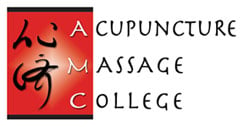Qigong, a form of traditional Chinese medicine (TCM), may be a potential complementary treatment for osteoarthritis, according to a study conducted at University of Medicine and Dentistry of New Jersey. The study, led by Kevin Chen, Ph.D. and Dr. Adam Perlman, appears in a recent edition of Clinical Rheumatology.
Arthritis is the primary cause of chronic disability in the US; osteoarthritis is the most common form of arthritis, affecting nearly 21 million Americans. Individuals experiencing osteoarthritis are increasingly utilizing complementary and alternative medicine therapies, such as qigong, which is used in China to treat arthritis.
"Although further research needs to be conducted, qigong may be an effective complementary treatment for osteoarthritis," said Dr. Perlman, chair of the Department of Primary Care, executive director of the UMDNJ-Institute for Complementary and Alternative Medicine and study co-author. "Given the limitation and potential adverse effects of drug intervention of osteoarthritis, qigong therapy might prove to be a valuable option as a supplement to conventional treatment.”
The study utilized qigong, focused attention, acupressure applied to specific points, and additional mind healing techniques to direct chi. Findings indicated improvements in functionality and a significant reduction in pain in a majority of the study participants.
Qigong, or “energy cultivation,” is a system of breathing and movement exercises practiced for health maintenance and increased vitality. Forms of traditional Chinese qigong consist of focused intention, physical movement and mind-body integration to increase the flow of chi.
Qigong forms were originally created in ancient China and descended through various schools (Taoist, Buddhist, Confucian, Neo-Confucian, Chinese medicine, and traditional Chinese martial arts). Modern qigong practices can be categorized as medical, martial or spiritual with overlap between the branches. All styles have similar principles: Posture, breathing techniques and mental focus.
Healing qigong (medical) is the preventative aspect of TCM. Medical qigong is taught for primarily health maintenance purposes but may be tailored for curative intervention. Various forms of qigong are also taught in conjunction with Chinese martial arts, and are prevalent in advanced internal martial arts training. Spiritual qigong, developed from Taoism and Buddhism, emphasizes tranquility and self-awareness.
Health benefits of qigong practice include: Improved balance and flexibility, strengthened concentration and circulation, increased energy, reduced stress, lowered blood pressure, slower respiratory rate, and prevention of illness.
Qigong may be beneficial for various diseases and ailments, such as cardiovascular disease, fibromyalgia, chronic fatigue, headaches, arthritis, and asthma. A consistent practice of qigong promotes longevity and strengthens the mind-body connection. Regular practice of qigong slows the aging process and can extend lifespan.
Acupuncture & Massage College is offering a qigong class, Yoga and Qigong for Seniors, every Tuesday 11am-12:30pm. Class fee is $15.00 per class. For class information or to RSVP call (305) 595-9500.
For information about Acupuncture & Massage College’s Oriental Medicine and Massage Therapy programs call Joe Calareso, Admissions Director, at (305) 595-9500.

 (305) 595-9500
(305) 595-9500






